Filter by
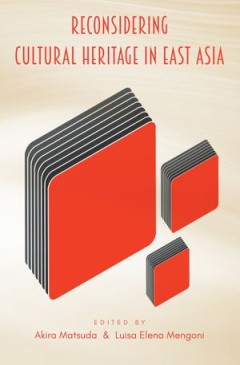
Reconsidering Cultural Heritage in East Asia
The concept of ‘cultural heritage’ has acquired increasing currency in culture, politics and societies in East Asia. However, in spite of a number of research projects in this field, our understanding of how the past and its material expressions have been perceived, conceptualised and experienced in this part of the world, and how these views affect contemporary local practices and notions …
- Edition
- -
- ISBN/ISSN
- 9781909188891
- Collation
- -
- Series Title
- -
- Call Number
- 301 REC r
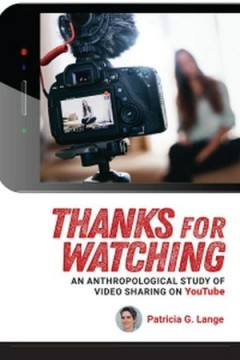
Thanks for Watching: An Anthropological Study of Video Sharing on YouTube
YouTube hosts one billion visitors monthly and sees more than 400 hours of video uploaded every minute. In “Thanks for Watching,” Patricia Lange offers an anthropological perspective on this heavily mediated social environment, demonstrating how core concepts from anthropology—participant-observation, reciprocity, and community—apply to sociality on YouTube and how to reconceptualize an…
- Edition
- -
- ISBN/ISSN
- 9781607329473
- Collation
- -
- Series Title
- -
- Call Number
- 301 LAN t
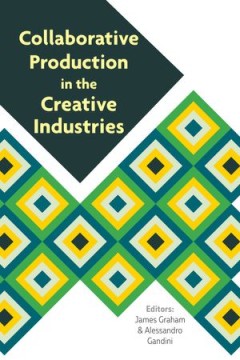
Collaborative Production in the Creative Industries
In recent years research into creative labour and cultural work has usually addressed the politics of production in these fields, but the sociotechnical and aesthetic dimensions of collaborative creative work have been somewhat overlooked. This book aims to address this gap. Through case studies that range from TV showrunning to independent publishing, from the film industry to social media pla…
- Edition
- -
- ISBN/ISSN
- 9781911534280
- Collation
- -
- Series Title
- -
- Call Number
- -
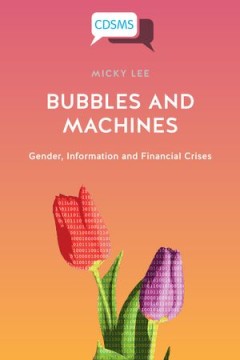
Bubbles and Machines
Are financial crises embedded in IT? Can gender studies offer insights into financial reporting? Feminist theories and Science and Technology Studies (STS) can enrich a critique of financial crises in capitalism as the author argues their critical, political economic approaches to communication can help in understanding because they historicize technology and economy and how these are materiall…
- Edition
- -
- ISBN/ISSN
- 9781912656011
- Collation
- -
- Series Title
- -
- Call Number
- -

The Logic of Invention
In this long-awaited sequel to The Invention of Culture, Roy Wagner tackles the logic and motives that underlie cultural invention. Could there be a single, logical factor that makes the invention of the distinction between self and other possible, much as specific human genes allow for language? Wagner explores what he calls “the reciprocity of perspectivesâ€_x009d_ through a journey …
- Edition
- -
- ISBN/ISSN
- 9780999157053
- Collation
- -
- Series Title
- -
- Call Number
- 301 WAG l
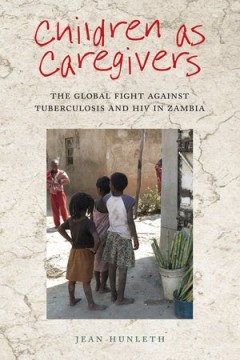
Children as Caregivers: The Global Fight Against Tuberculosis and HIV in Zambia
The global public health community has focused care and funding on TB and HIV in Zambia, but adult policy-makers, doctors, and humanitarians often ignore children's perspectives as they confront infectious diseases. Well-intentioned practioners fail to realize how children take on active caregiving roles when their guardians become seriously ill. Using ethnographic methods, and listening to the…
- Edition
- -
- ISBN/ISSN
- 9780813588049
- Collation
- -
- Series Title
- -
- Call Number
- 301 HUN c
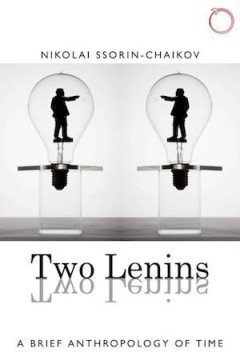
Two Lenins: A Brief Anthropology of Time
Highly innovative and theoretically incisive, Two Lenins is the first book-length anthropological examination of how social reality can be organized around different yet concurrent ideas of time. Nikolai Ssorin-Chaikov grounds his theoretical exploration in fascinating ethnographic and historical material on two Lenins: the first is the famed Soviet leader of the early twentieth century, and th…
- Edition
- -
- ISBN/ISSN
- 9780997367539
- Collation
- -
- Series Title
- -
- Call Number
- 301 SSO t
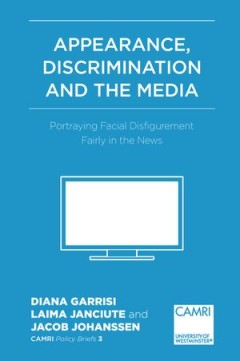
Appearance, Discrimination and the Media
The portrayal of disfigurement in the UK media must change. This policy brief is based on recent research that found a general negative and sensationalised attitude towards disfigurement in the media. Disfigurement is a condition that can affect anyone at any time in life regardless their social or demographic background due to accidents or health conditions or be congenital. In the UK, one in …
- Edition
- -
- ISBN/ISSN
- 9781912656233
- Collation
- -
- Series Title
- -
- Call Number
- -

The Owners of Kinship: Asymmetrical Relations in Indigenous Amazonia
The Owners of Kinship investigates how kinship in Indigenous Amazonia is derived from the asymmetrical relation between an “ownerâ€_x009d_ and his or her dependents. Through a comprehensive ethnography of the Kanamari, Luiz Costa shows how this relationship is centered around the bond created between the feeder and the fed. Building on anthropological studies of the acquisition, distri…
- Edition
- -
- ISBN/ISSN
- 9780997367591
- Collation
- -
- Series Title
- -
- Call Number
- 301 COS o
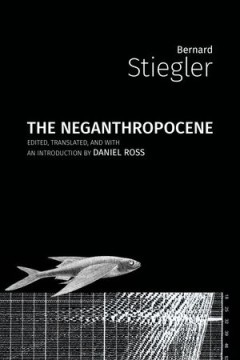
The Neganthropocene
In the essays and lectures here titled Neganthropocene, Stiegler opens an entirely new front moving beyond the dead-end “banality” of the Anthropocene. Stiegler stakes out a battleplan to proceed beyond, indeed shrugging off, the fulfillment of nihilism that the era of climate chaos ushers in.
- Edition
- -
- ISBN/ISSN
- 9781785420481
- Collation
- -
- Series Title
- -
- Call Number
- -
 Computer Science, Information & General Works
Computer Science, Information & General Works  Philosophy & Psychology
Philosophy & Psychology  Religion
Religion  Social Sciences
Social Sciences  Language
Language  Pure Science
Pure Science  Applied Sciences
Applied Sciences  Art & Recreation
Art & Recreation  Literature
Literature  History & Geography
History & Geography